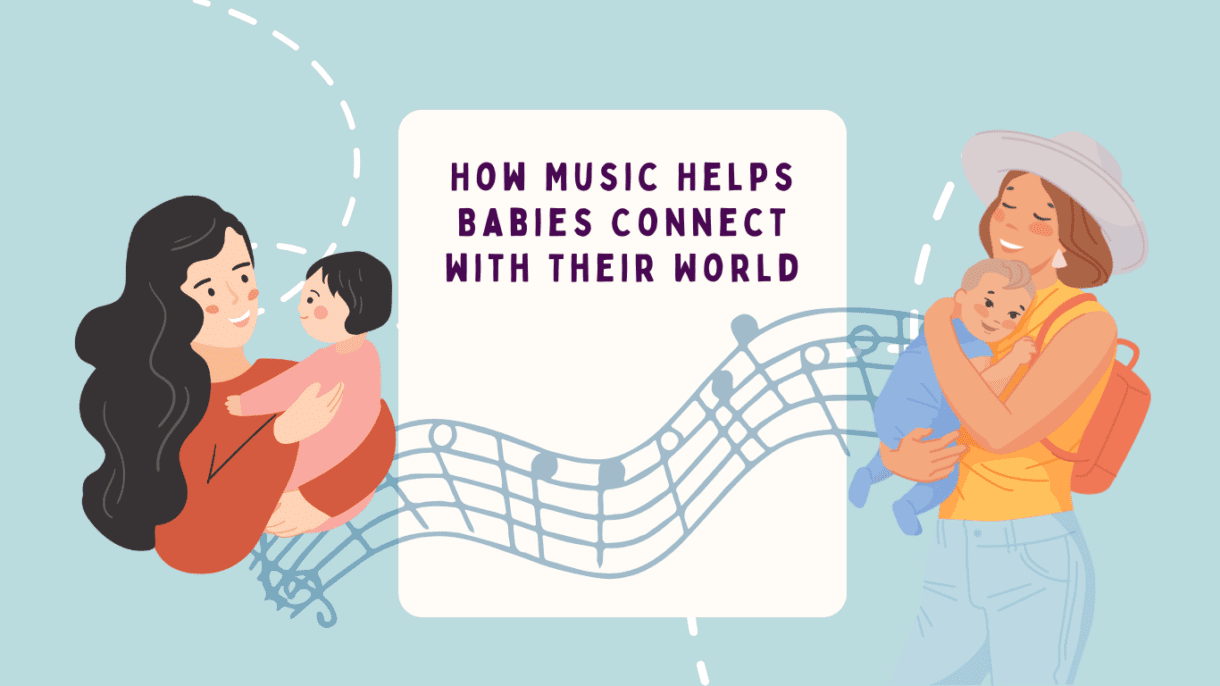
By the time your baby is 4-6 months old, an amazing milestone takes place—they begin to localize sounds, turning their heads to find the source. This development is a key step in auditory and cognitive growth, helping your baby connect with their environment. Music can play a powerful role in nurturing this ability, engaging their senses and encouraging exploration.
At Our Music Studio, we recognize the importance of these early moments in a baby’s development. Here’s how music supports your baby’s growing ability to localize sounds and why it matters.
The Role of Sound Localization in Baby Development
Sound localization is the ability to determine where a sound is coming from, which is a critical skill for your baby’s sensory and motor development. When your baby hears a sound and turns their head toward it, they are:
- Strengthening their auditory processing abilities
- Practicing hand-eye-ear coordination
- Building awareness of their surroundings
This foundational skill is essential for later communication, language learning, and social interaction.
How Music Enhances Sound Localization
Music provides an engaging and dynamic way to encourage sound localization in babies. Simple activities can help them focus on sounds and their sources:
- Interactive Music Play: Instruments like bells, tambourines, and shakers produce distinct sounds that babies can follow with their eyes and ears.
- Call-and-Response Games: Singing or making sounds from different directions prompts babies to locate the source, strengthening their auditory tracking skills.
- Varied Soundscapes: Playing music with changing rhythms and tones keeps your baby engaged and helps them differentiate between different types of sounds.
Why This Matters for Long-Term Growth
The ability to localize sounds has long-term benefits that extend beyond infancy. As your baby hones this skill, they develop:
- Better Communication Skills: Recognizing and focusing on a speaker’s voice is essential for language learning.
- Improved Spatial Awareness: Understanding where sounds come from helps with movement and coordination.
- Stronger Attention and Focus: Training the brain to follow sounds builds concentration and cognitive flexibility.
By introducing music early, you’re giving your baby a head start in mastering these vital skills.
How Our Music Studio Supports Baby Development
At Our Music Studio, we incorporate sound localization activities into our music classes to support your baby’s growth:
- Engaging Sound Play: We use instruments and interactive songs to create a playful, stimulating sound environment.
- Encouraging Exploration: Babies are encouraged to move, reach, and explore sound sources during our classes.
- Building Parent-Child Bonds: Parents actively participate, guiding their babies in recognizing and responding to sounds.
Our programs are designed to turn these developmental milestones into joyful learning experiences.
How You Can Help Your Baby at Home
You can continue fostering sound localization outside of music class with simple activities:
- Use rattles or toys that make noise to encourage your baby to turn their head toward the sound.
- Sing or speak to your baby from different directions and watch them respond.
- Play gentle, varied music and observe how your baby reacts to different tones and rhythms.
These small, consistent actions make a big difference in your baby’s auditory development.
A World of Discovery Through Music
Every sound your baby hears is an opportunity for learning and discovery. By nurturing their ability to localize sounds, you’re setting the stage for essential developmental skills that will support them throughout their life.
Enroll Your Child Today!
At Our Music Studio, we build lasting musical bonds with your children through social, cognitive and physical developments.


0 Comments